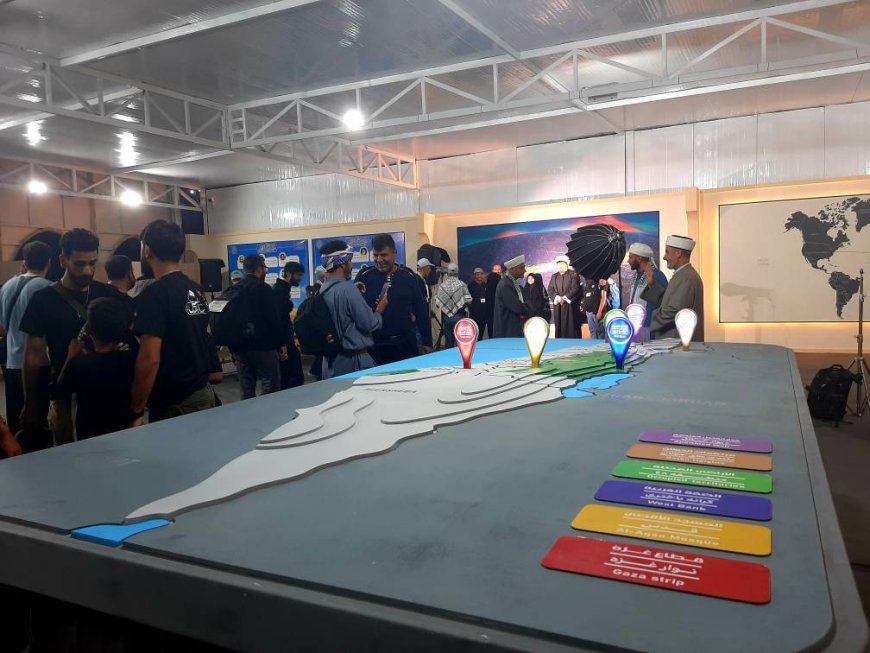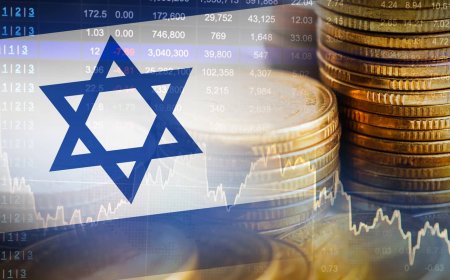A Palestinian Mowkeb in Arbaeen: A Symbol of Islamic Unity and Solidarity
A Palestinian Mowkeb in Arbaeen: A Symbol of Islamic Unity and Solidarity

The Arbaeen pilgrimage serves as an enlightening and experiential endeavor aimed at developing fortitude and resilience in the face of adversity. It is through this undertaking that one's resolve to combat oppression and political hubris is fortified. The struggle against global arrogance stands as an integral aspect of the essence of Islam. The Islamic Revolution in Iran, led by the late Imam Khomeini and subsequently continued by Imam Khamenei, along with the efforts of resistance movements such as Hamas, Islamic Jihad, Hezbollah, and the broader Islamic Resistance Front, have relentlessly endeavored to challenge global arrogance.
The recognition of the unwavering endeavors of Palestinians, comprising individuals of all gender and age groups, who persistently champion the cause of resistance against Zionist oppression, assumes paramount significance. Over the course of decades, Palestinians have consistently opposed the existence of the fake and illegitimate Zionist regime. Against the backdrop of diverse participants in the Arbaeen congregation, it becomes imperative to accord primary importance to the central preoccupation of the Islamic world: the occupation of Palestine.
In 1982, following Israel's invasion of Lebanon, Imam Khomeini strongly condemned the incident and expressed words that have since held profound meaning. He specifically declared that "The path to Bayt al-Muqaddas passes through Karbala," a statement that has now materialized as a tangible manifestation.
Since last year, the "Al-Aqsa Call Conference" has been convened to arrange a Palestinian mowkeb [the Arabic name for the tent where pilgrims are offered food, a place to rest, and other amenities] during the Arabaeen procession along the road to Karbala. It is important to highlight that this marks the second year in a row in which a Palestinian mowkeb has been organized, primarily staffed by devotees hailing from Palestine, Lebanon, and Jordan.
Upon arriving at the Palestinian mowkeb, one of its servants removed her Palestinian keffiyeh from around her neck and presented it to me as a present. This heartfelt gesture bestowed upon me one of the most unique gifts I have ever received, and I hold it dear to my heart. The walls of the mowkeb were adorned with an array of impressive posters and designs depicting various aspects of Palestine. One notable centerpiece of the mowkeb was a meticulously crafted replica showcasing the map of Palestine, which included the currently occupied territories: Bayt al-Muqaddas, Gaza Strip, West Bank, the 1948 regions, Golan Heights, and the Separation Wall.
The replica has attracted a throng of young pilgrims who enthusiastically participate in discussions and pose thought-provoking questions. They eagerly exchange knowledge about occupied Palestine, fostering a collective consciousness. It was truly remarkable to witness not only the mowkeb's servants but also the visitors themselves actively spreading awareness about the occupied Palestinian territories. Families, fully cognizant of the moment's significance, seize the opportunity to capture cherished memories by taking souvenir photos next to the map of Palestine.
Three ladies, holding photos of martyrs from the Fatemiyoun Battalion, approached me and asked if I could take a picture of them. After capturing the photo, I made my way towards them. One of the women happened to be the mother of a martyr from the Fatemiyoun Battalion. She mentioned that she had also visited this Palestinian mowkeb last year.
Outside the mowkeb, a collection of photographs showcasing five Palestinian martyrs captured my attention. Meanwhile, I spotted my Palestinian friend Lina. With excitement, I waved at her, and in an instant, she rushed towards me, embracing me tightly as if we had known each other for years. It was remarkable considering we had only met for the first time two days ago at the shrine of Imam Hussein (PBUH).
With the blessings of Hussein's sacred blood and those valiant adherents of Imam Hussein who sacrificed their lives in the pursuit of justice, righteousness, and in opposition to tyranny and corruption, a momentous gathering unfolds in Karbala.
In this extraordinary congregation, I am accompanied by a young Palestinian lady, as we both find solace in the hospitable embrace of our neighboring nation, Iraq. Through this auspicious encounter, we establish a deep bond of friendship, engaging in thoughtful discussions concerning Palestine, all while experiencing a profound sense of serenity. Together, hand in hand, we offer our fervent prayers for the liberation of Palestine.













































